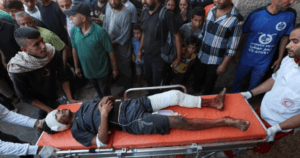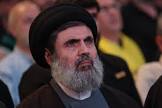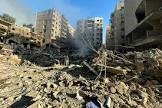- Missing in action - 12th February 2026
- Travel news again - 11th February 2026
- Ewe turn - 10th February 2026

During 23 years with the BBC, and a 41 year journalistic career (when he was trained to use clear and simple language, avoiding jargon), for our Editor, Welshman Phil Parry numbers have always been difficult, although paramount (whether reporting casualties, assessing the size of protest marches, or showing how economies are faring) – and now this is underscored by figures emerging from the Middle East, where the total of those killed by Israel continues to mount, but its economy is shrinking.

By some measures what we are seeing is an enormous success for Israel, but as with so many things I have witnessed over the years it could turn out to be a pyrrhic victory, and NUMBERS may hold the key…
What happened on October 7 2023 was a catastrophic failure for Israeli intelligence, yet now it seems its reputation is held in high regard once again.

“We have restored deterrence”, declared Amos Yadlin, a former head of the Israeli military intelligence service.
His comment came in the wake of Israel’s response to the terrible incursion by Hamas when 1100 people were murdered, and 250 taken hostage.
Many prominent officials of Hamas have now been killed, such as Rawhi Mushtaha on Thursday (the organisation’s leader Yahya Sinwar remains at large, although he is a top target for Israel), and the ability to hit back by its supporting organisation Hizbullah in Lebanon has been massively degraded.
Yesterday at least 28 people were killed and 54 injured in an air strike on a school sheltering displaced families in Gaza, which Israel said was a headquarters for Hamas.

The Israeli military have said it was a “precise strike” targeting the group’s fighters operating inside a “command-and-control centre” at the school, and that it had taken numerous steps to mitigate harm to the civilians living there.
“This is a further example of the Hamas terrorist organisation’s systematic abuse of civilian infrastructure in violation of international law”, it stated.
The Hizbullah leader tipped to replace his cousin Hassan Nasrallah (who was killed last month), has been ‘unreachable’ since Israeli strikes hit Lebanon on Friday.

Following Mr Nasrallah’s death, his cousin Hashem Safieddine was the frontrunner to take his place, but he was targeted in an Israeli strike on Beirut and his fate is currently unknown.
Last week Saeed Atallah was also killed alongside three of his family members in a drone strike on a Palestinian refugee camp in northern Lebanon. He was one of the leaders of a Hamas armed wing.

Mr Atallah led the al-Qassam brigades, while its previous chief Mohammed Deif, was presumed killed in July. The International Criminal Court (ICC) had issued an arrest warrant for Mr Deif, for alleged war crimes, and crimes against humanity, including murder, rape and the taking of hostages.
Meanwhile another key Hizbullah figure was killed, too, this week.

Suhail Hussein Husseini was in charge of the militant group’s logistics, budgeting and management.
Mr Husseini was crucial in weapon transfers between Iran and Hizbullah and was responsible for distributing the advanced weaponry among the organisation’s units.
Additionally, he was a member of the Jihad Council, Hizbullah’s senior military leadership.

Another of his brothers in arms, Wafiq Safa, survived an Israeli strike we are told, although this has been the initial information about others who were actually killed.
At roughly the same time as this happened yesterday, the number of people killed in attacks on Beirut rose to 18, with a further 92 people wounded.

The Economist has declared: “Over a week after more than 80 Israeli bombs obliterated Nasrallah’s headquarters in southern Beirut, the group has yet to hold a funeral (reports suggest that he was secretly buried at a temporary site). Nor has it named a replacement; the surviving leadership is in disarray. The group’s military response to Israel’s aerial onslaught so far has been underwhelming”.


In an operation which may have been planned for years, walkie-talkies were detonated in Lebanon, killing at least 20 people and wounding 450, which came a day after another attack on Hizbullah, when pagers exploded, killing at least 12 people, including children.
Hizbullah has launched dozens of rockets into northern Israel, but after killing Mr Nasrallah, the country has destroyed half of the missiles suppled by Iran, and gone into Lebanon to destroy the other half.
At what cost has all this devastation been, however? Numbers once more could be crucial.
In Gaza almost 42,000 people have been killed (some of them women and children), and in Lebanon the death toll rises daily.

Many have not looked at either, the devastating impact on Israel itself, and numbers could again be central.
Gross Domestic Product (GDP) is shrinking year-on-year and two rating agencies, (Moody’s as well as Standard & Poor’s), have downgraded Israel’s Government debt.

The prolonged absence of so many reservists is hurting businesses of all sorts, and railway stations (which are, of course, vital for the economy), have been forced to shut down for lack of security guards.
So we should not forget the human suffering – but it may be NUMBERS which are emphasised most in history books!
Important stories like these that Phil has covered in his long journalistic career, as he was gripped by the rare neurological condition Hereditary Spastic Paraplegia (HSP), have been released in a major book ‘A GOOD STORY’. Order it now!









